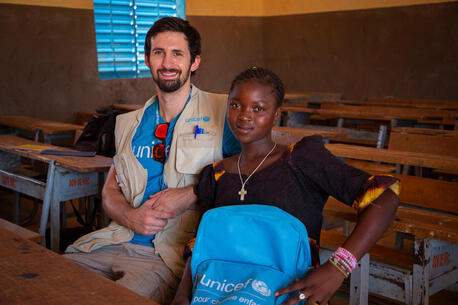
Investing in Girls and Their Futures
Investing in girls is not only the right thing to do for girls, it will also have positive impacts on their families, their communities and their societies — now and in the future.
Every girl has the right to an education and to make decisions about her own future. Adolescent girls around the world are raising their voices and leading the shift toward a more egalitarian world.
Yet while girls are willing to help shape our collective future, a web of concurrent, interrelated crises and barriers stand in their way.
UNICEF-supported programs around the world are helping to end child marriage, keep girls in school and protect girls' mental and physical well-being. These efforts highlight the importance of investing in girls, while underscoring the urgent need for greater financial commitments to protect and promote girls' rights.
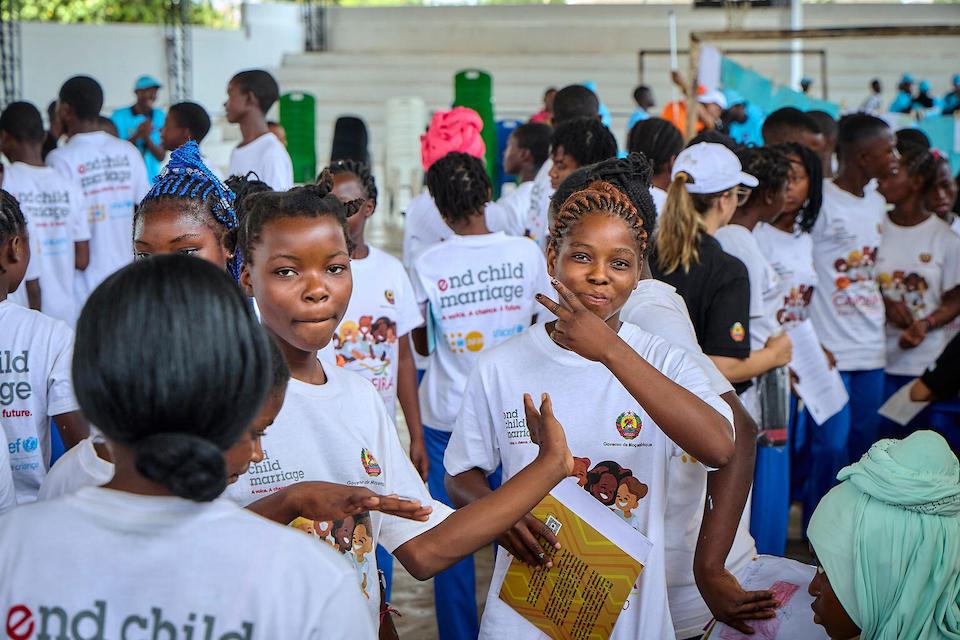
Preventing girls from marrying early protects them from abuse and helps them reach their full potential
Girls who marry before the age of 18 are not only denied a childhood, they are also often socially isolated, with limited opportunities for education and employment, preventing them from reaching their full potential.
UNICEF works around the world with a range of stakeholders to change attitudes about child marriage and to empower girls who are at risk of being married or are already in union. Since 2016, the Global Program to End Child Marriage, a joint initiative of UNICEF and UNFPA, the United Nations Population Fund, has reached more than 21 million adolescent girls with life-skills training, comprehensive sexuality education and school attendance.
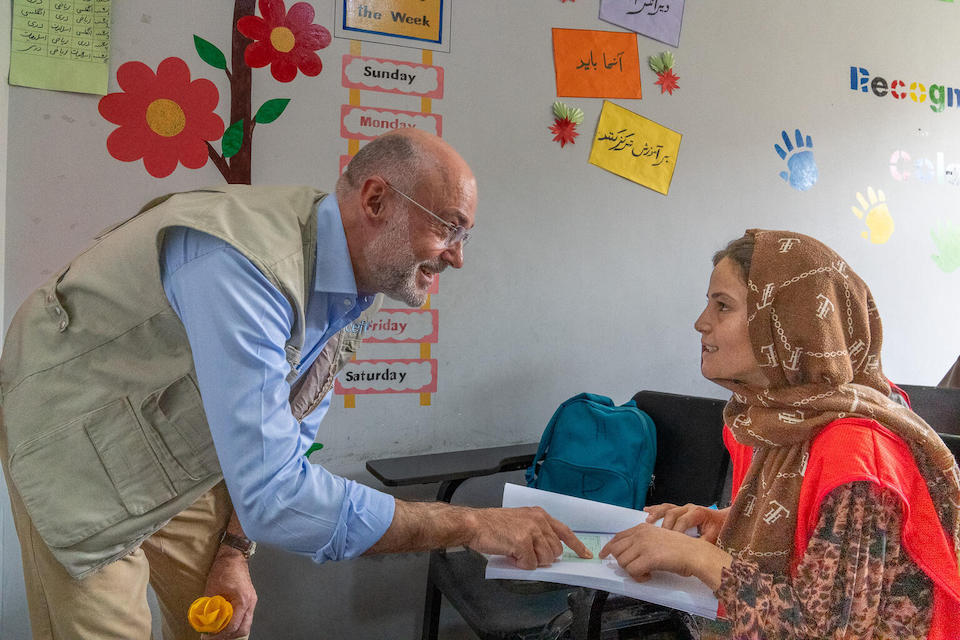
Helping girls finish high school can boost a country's GDP by 10 percent by 2030
On average, an educated girl will earn twice as much over her lifetime as a girl with no schooling. Globally, almost twice as many adolescent girls as boys are not in any form of education, employment or training. Recent research estimates that investments of just $1.53 per day per girl can boost the number of girls who complete high school, helping developing economies to expand their GDP (gross domestic product) by an average of 10 percent by the year 2030.
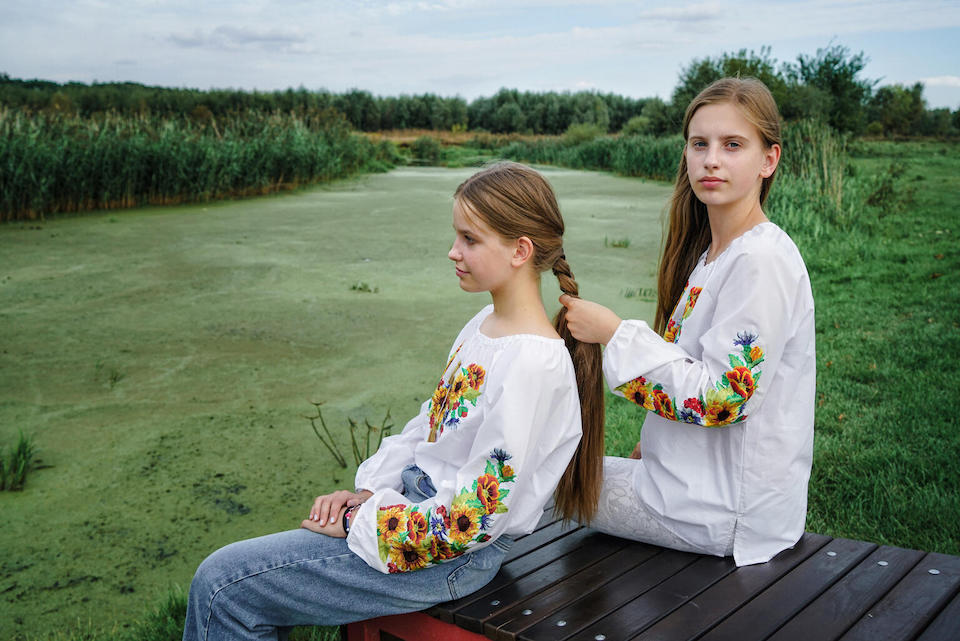
Interventions to improve the health of adolescent girls can lead to economic returns of up to 10 times their cost
At just over $5 per adolescent per year, interventions to improve adolescents' physical, mental and reproductive health can lead to economic returns of up to 10 times their cost, making them "among the best investments that can be made" to achieve the Sustainable Development Goals, a global plan to tackle poverty, improve lives and protect the environment.
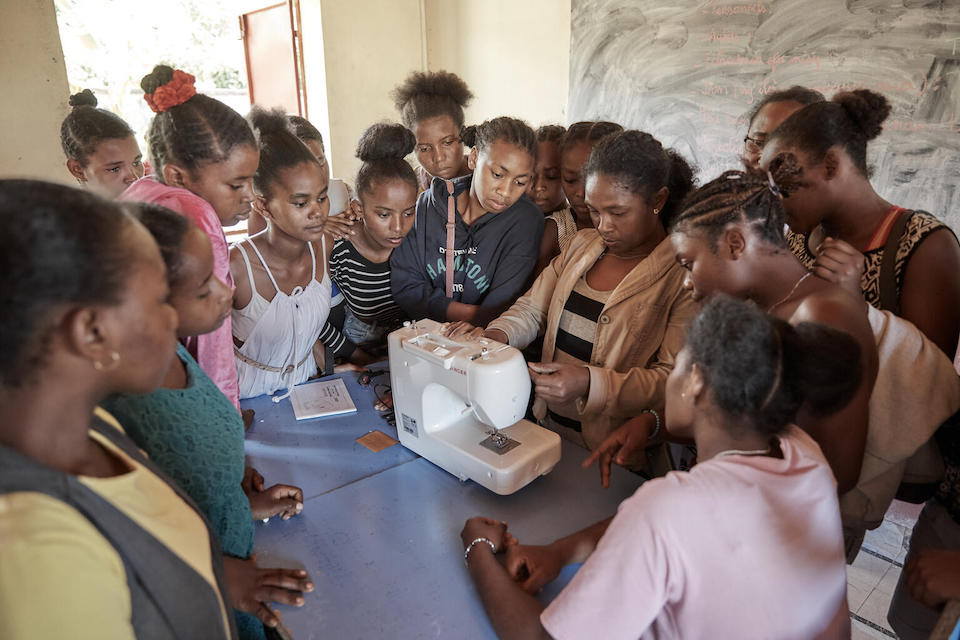
Skills training gives girls the tools they need to flourish
When girls are educated, healthy and skilled, they can contribute more effectively to the workforce and the consumer base, driving economic development. Numerous studies show that investing in girls' health, well-being, education and skills development can lead to higher incomes, increased productivity and a more skilled workforce.
Adolescent girls have immense yet widely untapped potential for innovation, creativity, entrepreneurship and leadership. UNICEF works to elevate the voices of girls and ensure they can take their rightful places as full participants in society.
Read Adolescent Girls: the Investment Case.
Learn more about how UNICEF is working toward gender equality.
As the international community seeks to create a more equitable world, we have a unique opportunity to overcome the challenges and give adolescent girls the freedom and power they need to lead and thrive. Your contribution can make a difference. Please donate.


